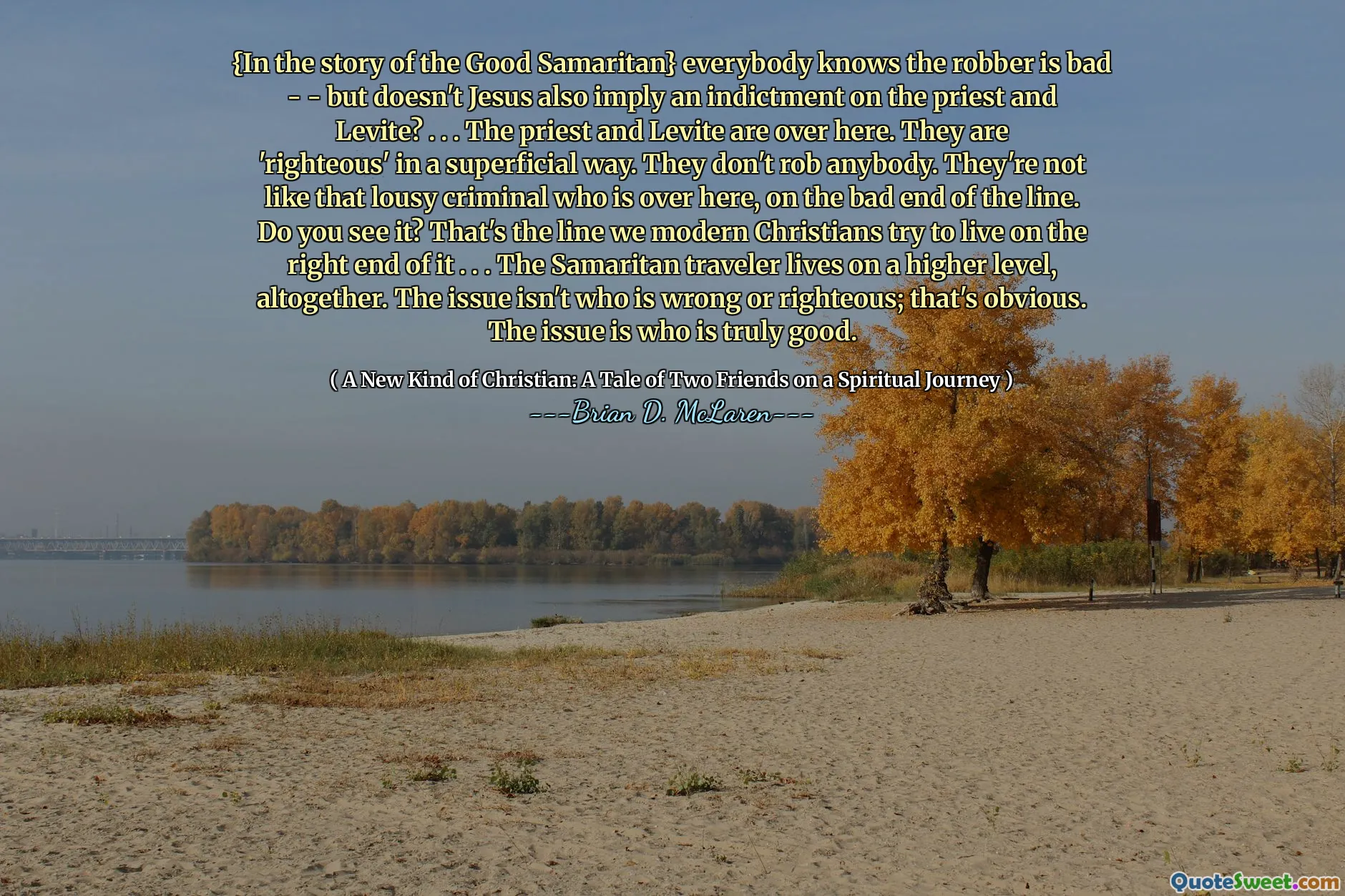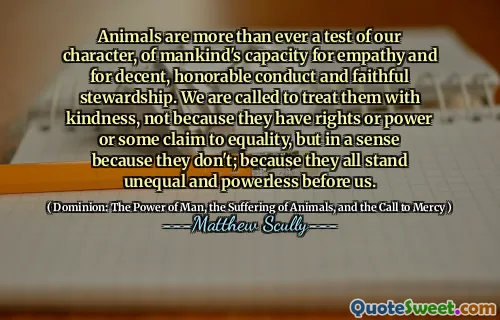
{In the story of the Good Samaritan} everybody knows the robber is bad - - but doesn't Jesus also imply an indictment on the priest and Levite? . . . The priest and Levite are over here. They are 'righteous' in a superficial way. They don't rob anybody. They're not like that lousy criminal who is over here, on the bad end of the line. Do you see it? That's the line we modern Christians try to live on the right end of it . . . The Samaritan traveler lives on a higher level, altogether. The issue isn't who is wrong or righteous; that's obvious. The issue is who is truly good.
This quote from Brian D. McLaren's A New Kind of Christian dives deeply into the story of the Good Samaritan, challenging conventional moral perspectives. It provokes an important reflection on the difference between superficial righteousness and true goodness. While the priest and Levite, representing societal norms of righteousness, avoid wrongdoing and are therefore generally seen as 'good', they fail in a more profound ethical test — aiding those in dire need. The Good Samaritan, by contrast, disregards societal boundaries and obligations to demonstrate a more authentic expression of goodness, one that is active, compassionate, and self-sacrificing. In contemporary Christianity, there’s often an unspoken competition to be on the 'right side' of morality — to avoid bad acts and align with accepted notions of righteousness. However, this story pushes us to challenge that complacency. It asks us to reconsider what it truly means to be 'good.' Goodness transcends mere obedience or social approval; it is measured by love in action, empathy, and sacrifice for others, especially those whom society dismisses or marginalizes. This reflects an invitation to all, not just religious individuals, to live beyond legalistic or surface-level morality and pursue a transformative, participatory love that redefines what it means to be faithful or moral in today's world.


